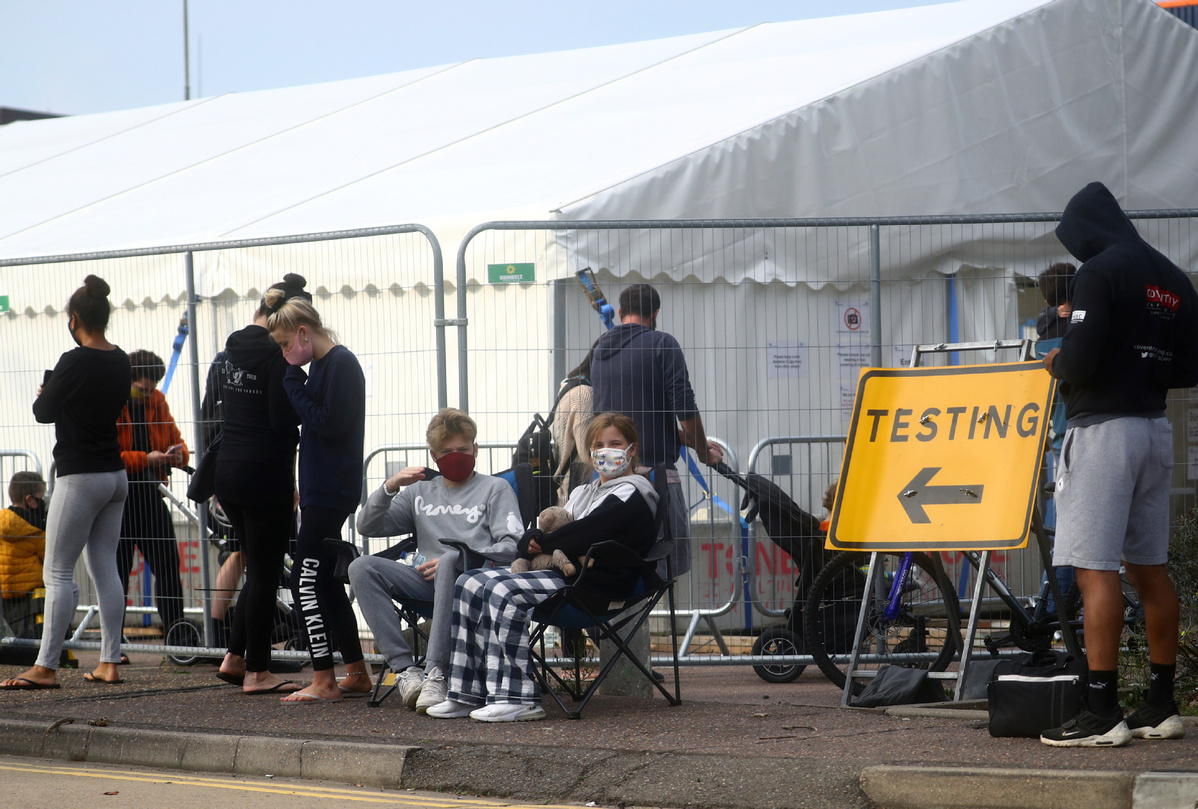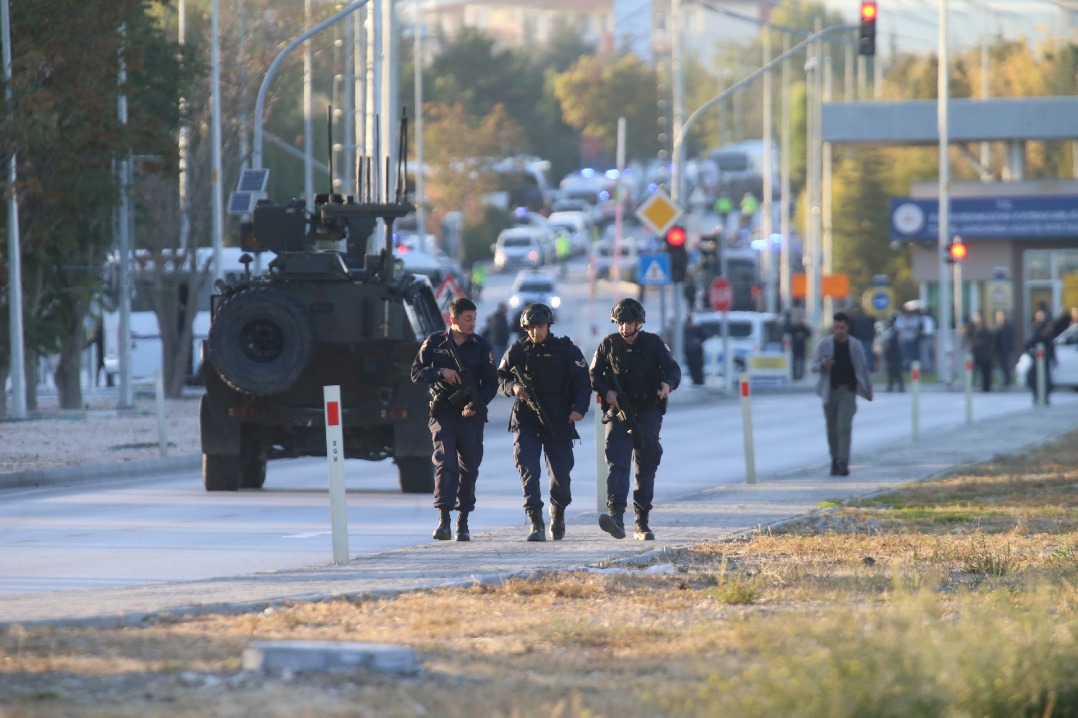UK's COVID-19 test system swamped by demand


Government urged to prioritize cases as capacity is overwhelmed nationwide
The British government is under pressure to solve a major issue with a nationwide lack of novel coronavirus tests as people unable to access official testing centers turn to local hospital emergency departments.
The government has vowed to boost laboratory capacity that has left people across the land with no way to get a COVID-19 test, as the consequences of local outbreaks, children returning to school, worried parents, and people moving back to their workplaces creates a "colossal spike" in demand.
British Prime Minister Boris Johnson faced questions in Parliament on Wednesday over the government's handling of the COVID-19 crisis.
Labour Party deputy leader Angela Rayner told Parliament that a promise for weekly tests in care homes "has not been delivered".
Johnson replied that testing capacity has increased from 210,000 to 240,000 per day, and has been tested by a "huge, huge surge in demand".He added that the United Kingdom is developing the most "thoroughgoing" testing regime in Europe.
The BBC's political correspondent Vicky Young reported that members of Parliament had told her that lots of people are asking for tests even though they are not eligible.
An analysis by The Times showed that there were no COVID-19 tests available in England at points on Tuesday and only a few slots free at centers in Scotland and Wales.
The failure of the testing system is placing huge pressure on the National Health Service, or NHS, and social care, according to the Bolton NHS Foundation Trust.
People in the northern town of Bolton, which has the highest infection rate in England, were going to hospitals for tests when they were unable to book slots online or at mobile units, Trust Chair Donna Hall told BBC radio.
"I've felt that there has been a real lack of a cohesive strategy for the whole containment of COVID-19 and for test and trace," Hall said.
Health Secretary Matt Hancock on Tuesday told Parliament that it might be "a matter of weeks" before the testing problems are fixed, and that plans would be published this week.
He said the system faced "operational challenges" and that there would be "prioritization" of tests for people with acute clinical need and in social care homes.
Justice Secretary Robert Buckland told Sky News on Wednesday that laboratory capacity has been an issue. Buckland suggested school children and their parents could be next in line for testing after the most vulnerable.
"It has to be the NHS first and then social care, and then I think what we need to do is have a cascading system where we know where our priority should be," he said.
The UK has had more than 370,000 confirmed cases of novel coronavirus and 41,000 people have died, government figures show.
It comes as a UK High Court decision ruled that insurers must pay out on small business claims for losses caused by the pandemic lockdown.
Disease clauses in their policies mean they were covered for claims, according to the ruling. Insurers had disputed the claims, saying policies were not meant to cover such unprecedented circumstances. The case had the potential to aff ect 370,000 small businesses and was brought by the Financial Conduct Authority.
Christopher Woolard, interim chief executive of the FCA, said the ruling gave clarity.
He said: "Coronavirus is causing substantial loss and distress to businesses and many are under immense financial strain to stay afloat. Today's judgement is a significant step in resolving the uncertainty being faced by policyholders."
Chancellor of the Exchequer Rishi Sunak has ruled out an extension to the UK government's furlough program, but says he is open to "innovative and effective new ways to support jobs".
There have been calls for the furlough program to be replaced when it ends next month, with Labour warning that unemployment could spike.
In an interview with the BBC, Sunak said he would take further action to prevent a wave of job losses, after official figures showed a surge in UK redundancies.
He said finding innovative solutions was "top of mind" as figures showed unemployment rose to 4.1 percent in the three months to July, up from 3.9 percent.
Meanwhile, there was severe disruption in the Irish Parliament on Tuesday when all members of the Cabinet in Dublin were told to self-isolate after Health Minister Stephen Donnelly fell ill with suspected COVID-19. He later tested negative and the restrictions were lifted in the evening.

































